Hanging Gardens by director Ahmed Yassin Al Daradji is the result of the struggle of a young generation of filmmakers, raised under Saddam Hussein, now dividing time between Baghdad and the capitals of Europe.
Laura Silvia Battaglia
Two years ago, exactly at this time of the year, director Ahmed Yassin al-Daradji was sitting on the bank of the Diyala River, watching boy actor Hussain Muhammad Jalil, as darkness slowly fell over the Mesopotamian landscape around them: there were no sounds, after assistant director Wareth Kwaish asked the whole crew to remain on standby. Only frogs croaked. Everyone was waiting for nightfall, when the director, everyday at sunset, would call out Ciak! Action! for another take of one of the most important scenes in Hanging Gardens (Arabic title Janain Mualaqa), his latest film, in which two brothers struggle to survive in post-war Baghdad.
Fast forward and Hanging Gardens has become “the” Iraqi movie of the year, following its first screening in Venice in September 2022. In December, it won the Red Sea Film Festival’s Golden Yusr for Best Feature Film, the top prize of the festival’s main competition. It’s now a triumph from Beirut to Oslo in its myriad festival and theatrical screenings. It’s not news that an Iraqi movie receives such recognition per se, but that Iraqi creativity is once again making itself heard in Europe, far from the dynamic of wars, terrorism and horrors to which we’ve become accustomed over the last thirty years.
Without question the movie is the outcome of Iraq’s reality, but with an ironic, melancholy, surreal register. Often dark and dystopic, yet offering a glimmer of hope for its main character, 12-year-old As’ad (Jalil), the film brings to mind the novel Frankestein in Baghdad by Ahmed Saddawi, as scrappy Baghdad junk dealers are central in both the film and the novel.
Iraq stopped producing films in 2003, bringing to a halt the country’s long tradition of cinema. Prior to 1991, there were 275 movie theatres in Iraq, but the international embargo imposed after the Gulf War banned both filmmaking equipment and celluloid from entering the country. Local production resumed several years later, aided by 3D technology, the growing use of digital methods, the development of animated film and the work of film theory professors at Baghdad’s Institute of Fine Arts and at the city’s university.
As for film-going, Iraq is now experiencing a resurgence after years of darkness — the result of the country’s many problems in the 20th century. The last light had been switched off on August 1, 2007 when the Semiramis theatre, a favorite of film lovers in Baghdad, closed its doors for the last time, along with the rest of the city’s cinemas. It was only the Kurdi Group’s investment in the Mansour Mall project in Baghdad, complete with multiplex cinema, in 2013 after US troops had withdrawn, that brought film (and also US productions) back to the Iraqi capital.
“We have made no more than 100 works of fiction since the 1940s,” explained historian Tariq Aljouboury, a scholar who has written much on Iraq’s film scene. From the early 1950s through the late ‘80s, the country welcomed Arab, European, American and Bollywood film productions, a period in Iraq’s history is commonly referred to its Golden Age. Amateur directors were a large part of the industry. After the Ba’ath party came to power in 1968, the government built many film theatres but, as in all dictatorships, it used them for its own propaganda purposes. The resulting industry had limited freedom of expression in Iraq. “Today, Iraqi cinema needs investment and infrastructure if it is to be revived and develop in full,” Aljouboury said.
“It’s not just money which is lacking in Iraq…there is also a dearth of opportunities to study cinematography,” said Dirk Van Berg, a film producer who is a judge at the Baghdad International Film Festival, which was revived in 2012.
Still, Iraq appears to be at the dawn of a new cultural era. “Filmmaking in Iraq has had a 30-year sickness,” said Hussein al-Hani, who since 2014 has directed a film festival in Karbala, “but it has found a new home here. That’s why we have taken a gamble on Karbala and aim to turn it into a hub for both filmgoers and filmmakers.”
In 2013, when Arab states named Baghdad the Arab Capital of Culture, the Iraqi Culture Ministry’s Department of Cinema and Theatre provided 12 billion Iraqi dinars ($10.3 million) to support the film industry and the production of short films, feature films and documentaries. More investment of this type could see Iraq developing a film industry capable of competing in the international arena, on par with Jordan, which is thriving largely because of the country’s Royal Film Commission. But more opportunities are needed and funding must make its way to serious filmmakers. One of the few feature films actually produced following the surge in funding of that period was Raad Mushatat’s Silence of the Shepherd — an exception as a good deal of the funds were lost to corruption according to many. In fact, there was a list circulating on social media of all the films that were funded during that period — most of which were never made.
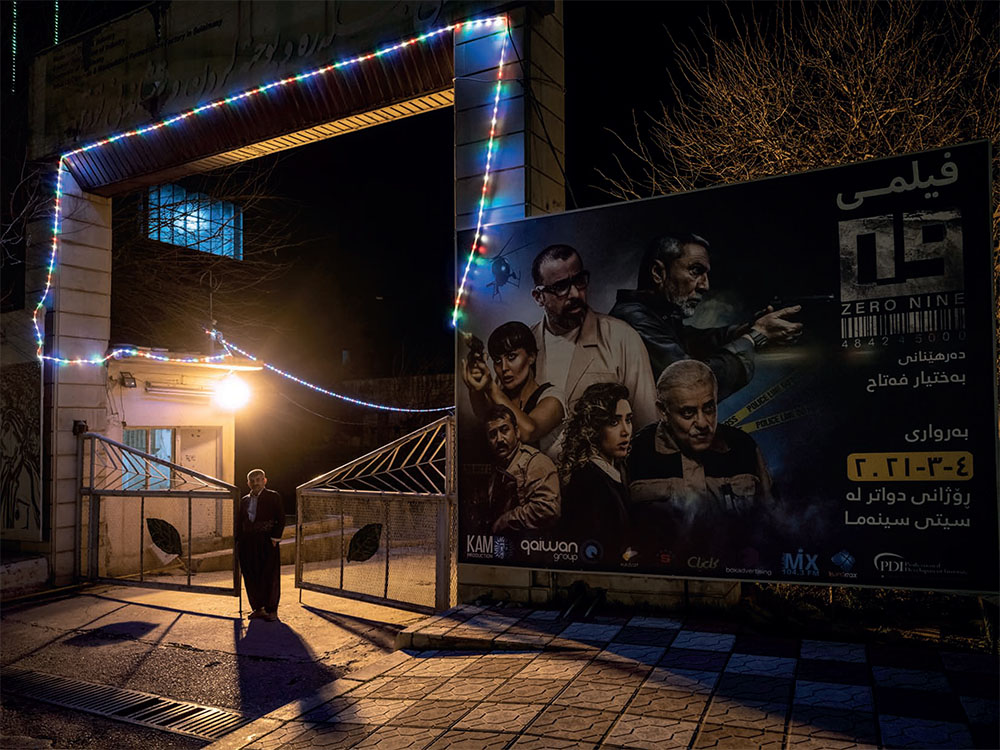
Ahmed Yassin Al Daradji, who has studied filmmaking in both Baghdad and London, is one of Iraq’s new talents. He is charismatic and is able to gather others around his projects, Iraqis who like him grew up in Baghdad and, after attending the film academy, left Iraq and studied abroad in France, England, Germany, Canada, or the Netherlands.
From my first encounter with Al Daradji on the set in Diyala, he had a clear idea about the core of his story: “In Hanging Gardens we talk about the loss of innocence: what does it means to an Iraqi child to encounter such a different and invasive culture? The American occupation completely changed our generation, for better or worse. At the same time, our generation of Iraqis looks at the rest of the world, especially the West, and dreams for ourselves happiness in daily life, the absence of corruption, and more civilization, freedom, modernity. We are not looking to replicate the Western model, but we aim to find our way to renew national pride.”
Iraqi pride is evident in Hanging Gardens. Consider, for instance, the importance given to tuk-tuks as preferred transportation for the leading character and his friends. Tuk-tuks were the symbol of the Tishreen revolution in Octber 2019, storming the main squares in Baghdad and used by protesters to move and transport people, food, medicines and books. (The same transportation motif makes up the title of Brussels-based Iraqi filmmaker Dhyaa Joda’s forthcoming documentary Tuk-Tuk Eye, filmed during the Tishreen revolution. His project was supported by the Red Sea Fund and is expected to enter the film festival circuit later this year.) As Al Daradji’s assistant director, Wareth Kwaish, explained: “This is the political side of the movie. We wanted to pay our tribute to the victims of the Tishreen revolution: most of us took part in that revolution and we can’t forget how young people were persecuted and killed by militias and Iraqi special forces only because they stood up, demanding their rights and a better, more inclusive society, without corruption.”
Apart from the film’s political overtones, there are a few surprises in Hanging Gardens, starting with the plot. Al Daradji explains it with the same passion he showed after shooting another scene — one of the film’s most intense and longest — in a dumpster near Baquba, south of Baghdad. “In the movie, young As’ad, an orphan, during a day spent in a dump, finds a life-size sex doll, in a bag of waste from an American base. The doll has an expressive face in which he recognizes the image of his mother, the one he has never known. He gives her a name, Salwa, and he takes care of her.”
The tenderness and the other sentimental nuances of this relationship are the result of an intense exchange between the director and the producer Margaret Glover, who edited the screenplay. Glover is American and does not hide how important this film was for her. “I immediately believed in this story; I learned how controversial our presence was and still is, as Americans, in Iraq; I tried to bring a feminine look into this world of men, in which there is only one female character, other than the doll.”
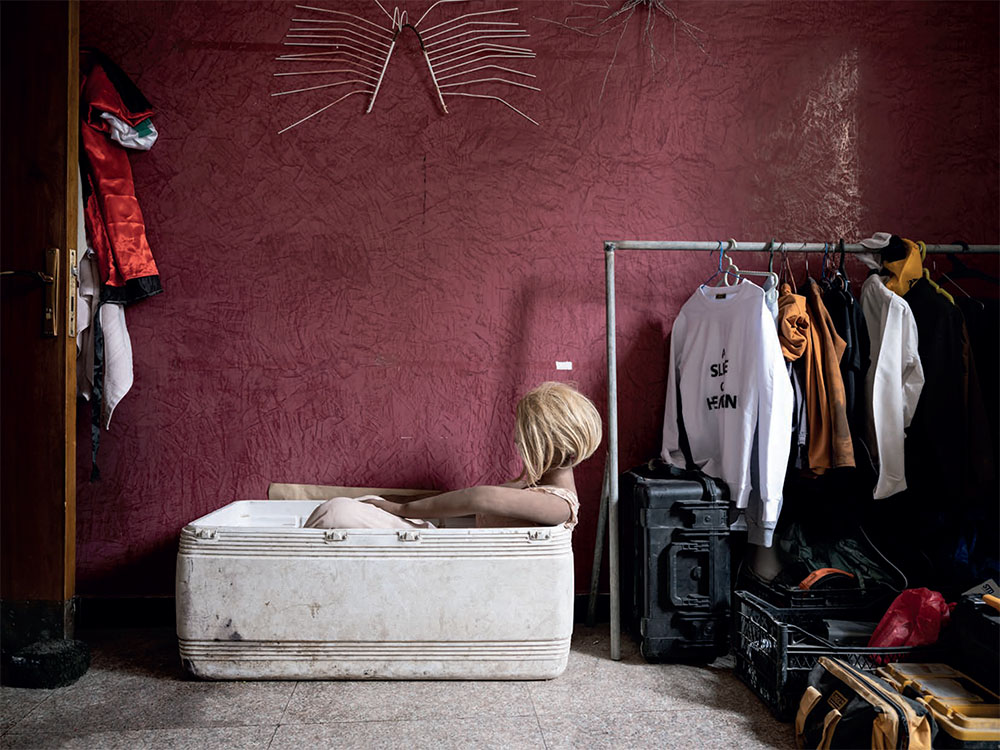
For this reason and others, Hanging Gardens is a tender, tragicomic movie. And it is courageous as well, because it deals with the topic of sex in a society where sex is hidden and taboo, or is shown as an expression of physical and mental exertion over another human being, whether over a woman, a child, a man, or a doll. Here sex is seen as a destructive and violent power, mirroring a deeply broken society.
“We have chosen a symbolic story to show Iraq today, trying to stay far from the stereotype of war and oil,” explained Kwaish. There’s also a personal, deep reason in this choice: “We strongly wanted to return to Iraq, despite great difficulties. Making films here has the flavor of discovery.”
Ahmed Yassin Al Daradji and Wareth Kwaish, both in their thirties, are just two of many Iraqi millennials who came of age during the American occupation of Iraq. While trained at Baghdad University, they left, one for London, the other for Paris, where they maintain relationships; but neither intends to stay in Europe. For them, this is the time to tell stories about their country of origin, and to bet on the immense potential of a place that has so much to share, despite the fact that Iraqi cinema plunged into oblivion after Saddam Hussein’s dictatorship. Al Daradji, who now divides his time equally between Baghdad and London, says his next film is in the works. With the working title Madness and Honey Days, he explains the plot this way:
After executing his fellow actors, and confronting the gallows prepared by Saddam Hussein’s security men upon the accusation of insulting the presidential stage, Salem, a 27-year-old theatre director, manages to convince the military court of his insanity. He lives out his last days during the final months before the fall of Saddam’s regime, exiled in a psychiatric hospital with execution awaiting him outside if the doctors announce his recovery.
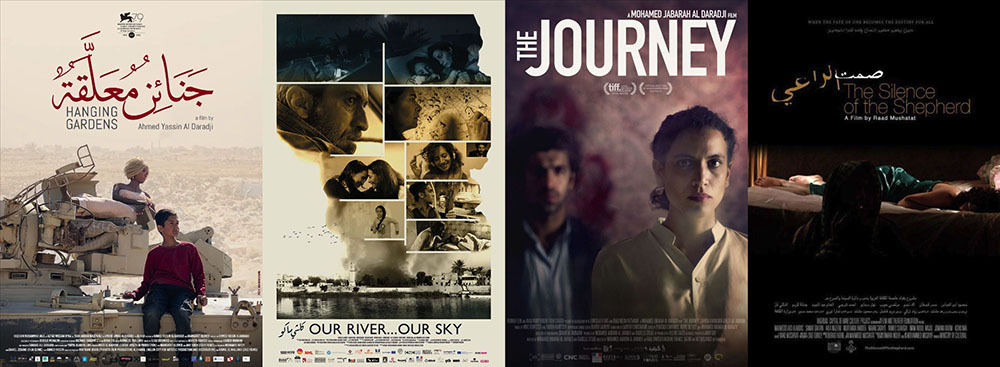
From 2013 with Baghdad as the Arab Capital of Culture, Iraqi government figures were urged to make other investments in cultural infrastructure, including the 87,000 square meter Grand Cultural Complex that houses a 1,500-seat opera theatre, and the Baghdad International Film Festival, which supports “new cinema in Iraq — a cinema for multiculturalism with a focus on the values of freedom, democracy, human rights and justice.” Unfortunately, several Culture Ministry projects were not entirely built and Baghdad’s al Rasheed theatre is rising from the ashes just now. One of the reasons is the power of the militias and the lack of security for many.
But after the defeat of ISIS/Daesh in 2016, the situation for the production of Iraqi films is flourishing, thanks to young filmakers and independent productions. There is also the Iraqi Independent Film Centre (IIFC). Its members describe it as an unrestricted space for critical thinking and filmmaking, with a focus on education, film production, and the promotion of Iraqi culture as its central pillars. IIFC founder-director Mohamed Al-Daradji (no relation to director Ahmed Yassin Al Daradji), who was born in 1978, said the absence of a film industry in Iraq was the driving incentive. “We don’t have an industry but we are making one,” he said. In recent years the IIFC has offered dozens of workshops and the screened many shorts. It is also behind an innovative “mobile cinema” project that tours remote villages, towns and refugee camps, which organizers say helps new cinema projects grow from the grassroots of Iraqi society. As a producer, Mohamed Al-Daradji’s films are among the most well known and recognized in Iraq — his productions include Son of Babylon, Mosul, and The Journey, which won an award at the Toronto International Film Festival and became the first Iraqi film in 27 years to be released in Iraqi theaters.
In other news, Iraqi filmmaker Maysoon Pachachi’s Our River…Our Sky just won the 2023 Ecumenical Film Prize in Germany for its portrayal of how sectarian strife spread after the 2003 U.S.-led invasion. London-based Pachachi wrote the film in collaboration with Baghdad-based author Irada Al-Jubori, a women’s rights activist. The Baghdad scenes in the film were shot under the aegis of Ishtar — the local production house of up-and-coming female producer Huda Al-Kadhimi (the same local production house behind Hanging Gardens).
Now, a new wind of change is blowing and Hanging Gardens along with several upcoming productions — from Iraqi filmmakers inside and outside the country — are the proof that Iraq has an opportunity to shed its war-torn image.



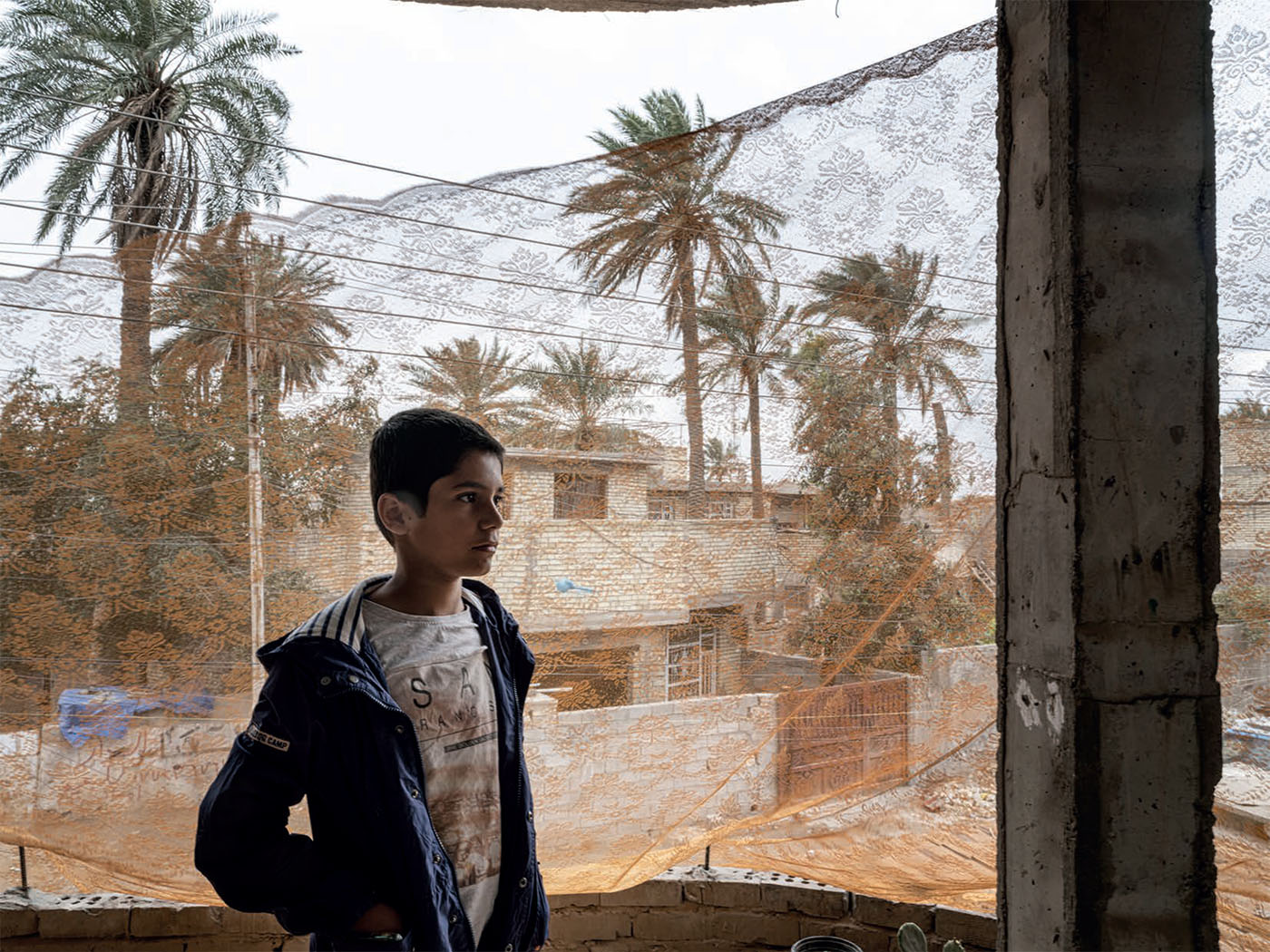

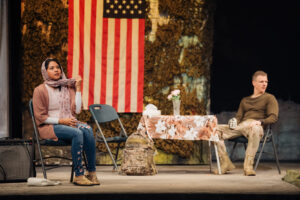



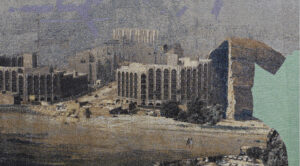







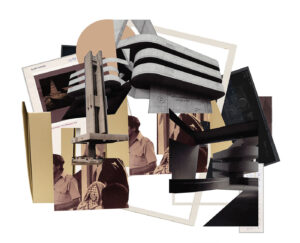



















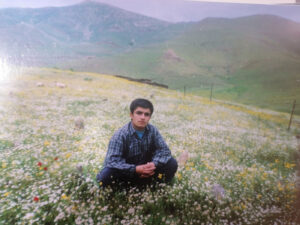

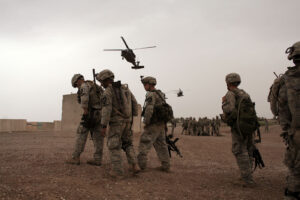











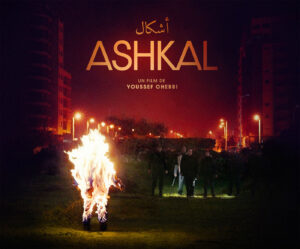
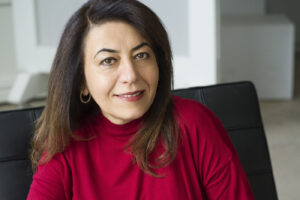



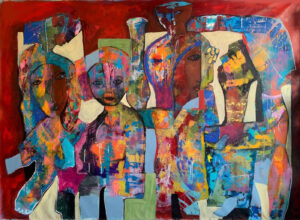




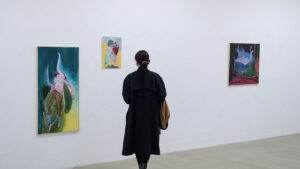






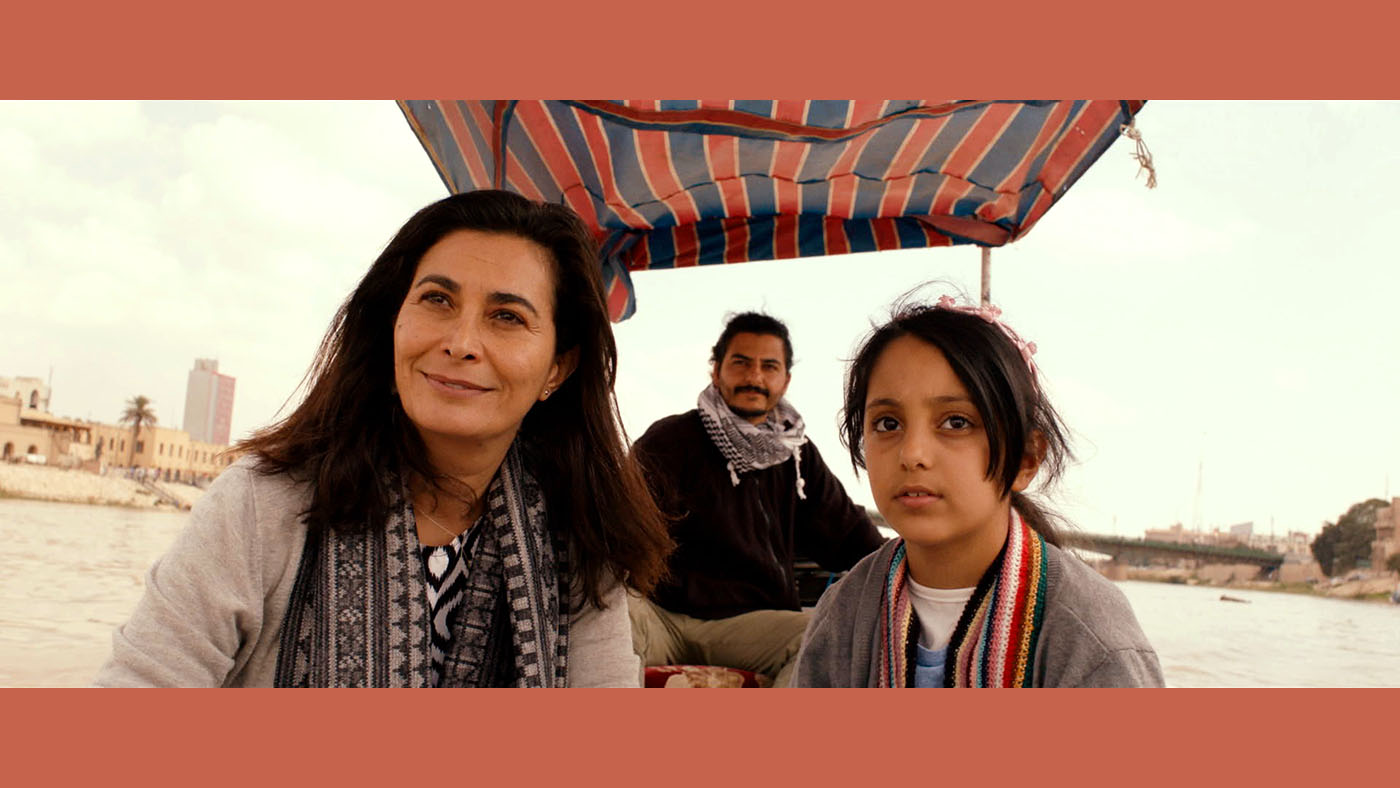
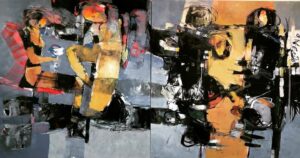





































Maravilloso reportaje de la situación del cine en Bagdad. Felicidades al dir de jardines colgantes. La acabo de ver en cdmx. Una realidad fuerte vista a través de la inocencia de un niño es maravillosa. No se casi nada de Irak y la película expresa mucho. La corrupcion, y la violencia. Pero la inocencia y los ojos de ese niño cuando ve a la muñeca sexual como su mamá me enterneció muchísimo. La imagen del tanque, la muñeca y el niño es increíble. Felicidades! al dir y a la periodista por sus carreras!!!!! y por lo que han logrado en su país, sin perder sus raíces. De verdad de corazón: felicidades!